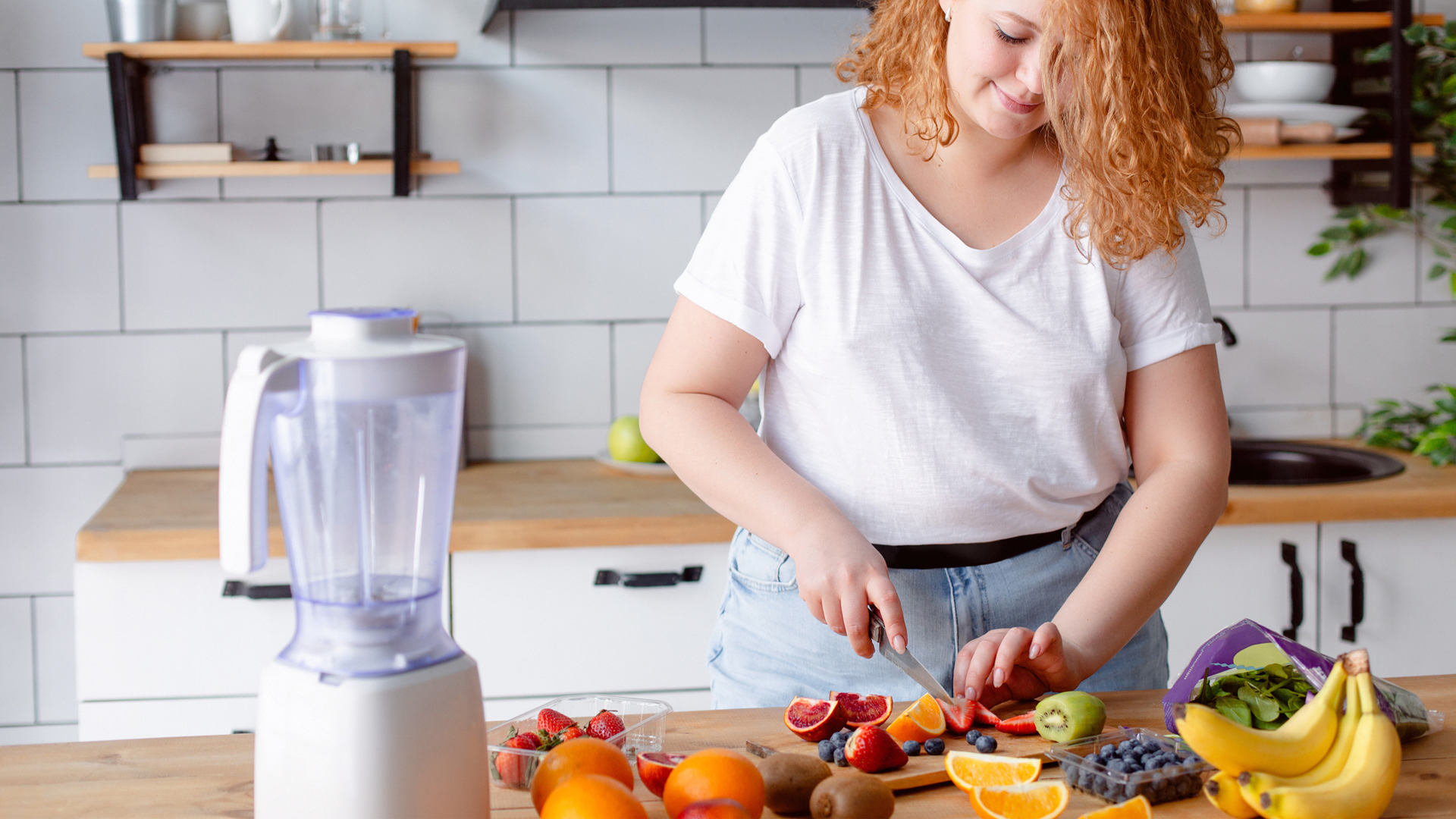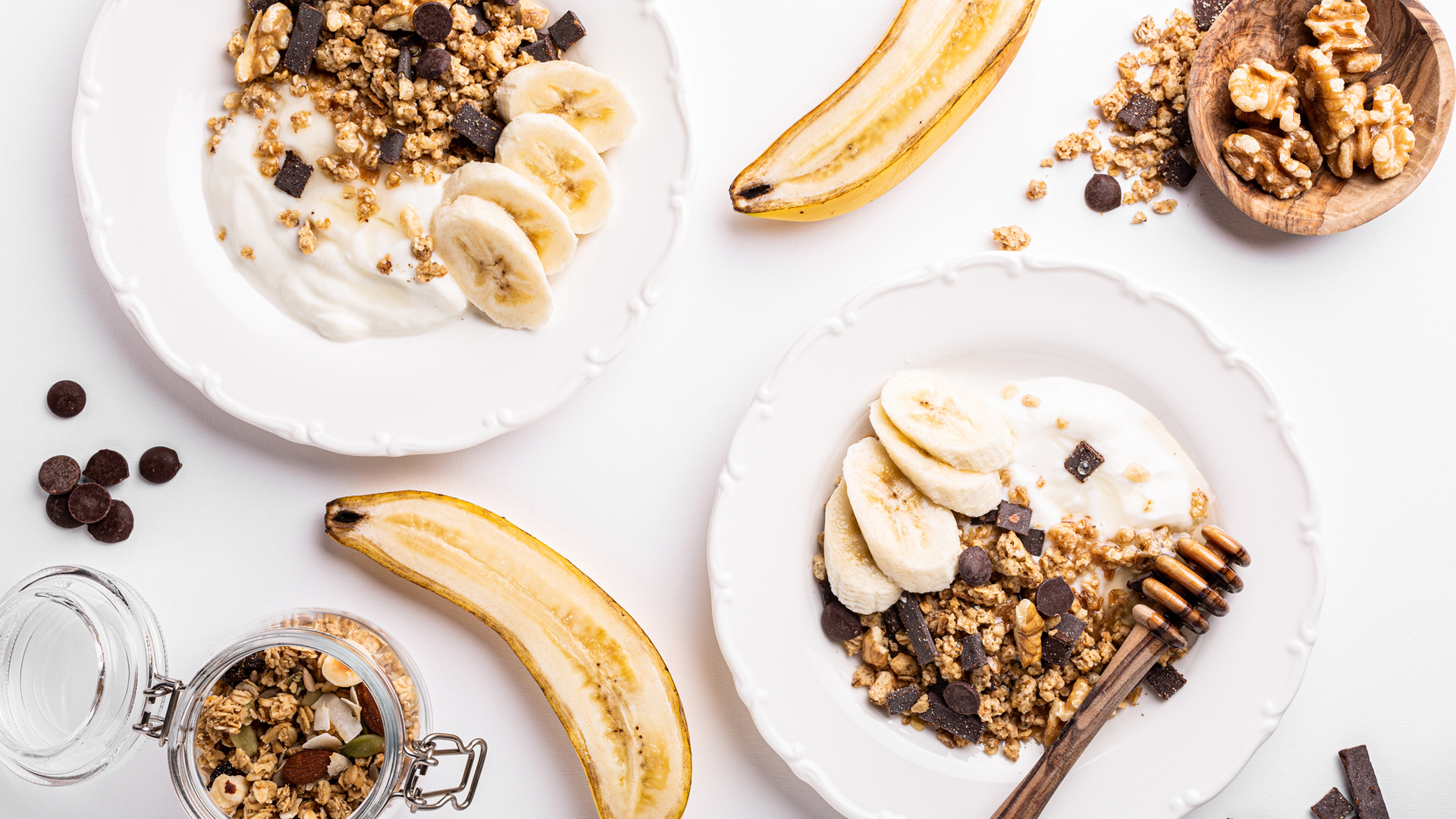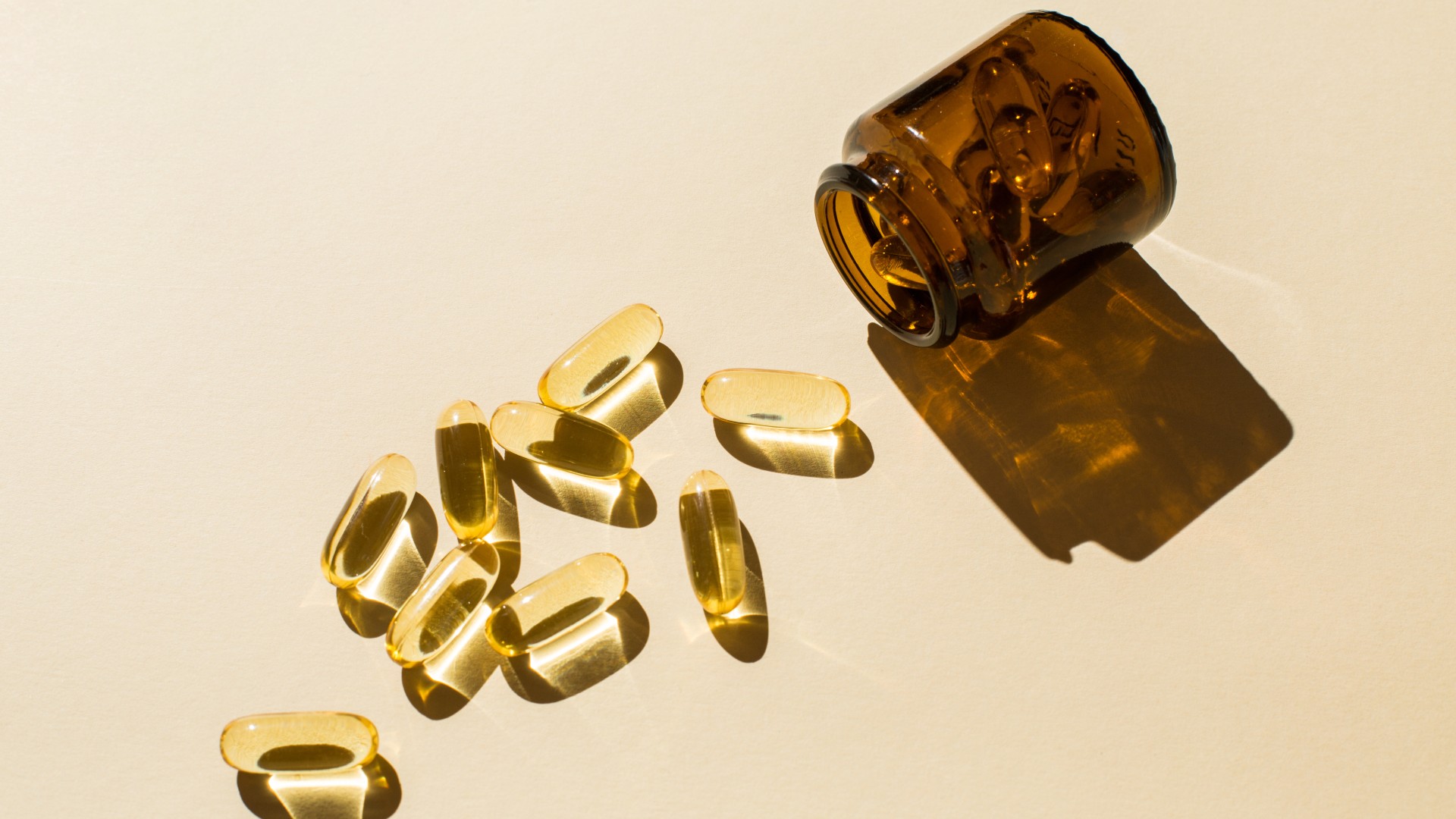Seven biggest diet myths
Our guide to the biggest diet myths separates fact from fiction, giving you the hard evidence behind these popular dieting fads

When it comes to dieting and weight loss, it’s tempting to look for a fast and easy way to lose pounds fast. Diet myths abound, especially on the internet. It can be hard to identify which ones have solid evidence behind them, and which ones are just wishful thinking.
Our guide to the biggest diet myths separates the fact from the fiction, giving you the evidence behind these fads. We’ve looked at the research and spoken to a registered nutritionist to uncover the truth behind eating fads, exercise myths, and restricted diets.
Plus, check out our guide to dieting tricks that really do work, from scheduling mealtimes to lowering your stress levels, as well as the best protein powder to add to shakes and smoothies and keep you fuller for longer.
1. "Low-fat foods lead to low-fat bodies”
Many people think that opting for low-fat versions of their favorite foods can help them to lose weight. However, a study published in Clinical Nutrition found that low-fat diets have been linked to health issues such as metabolic syndrome, a condition which can cause diabetes, obesity, and hypertension. Many foods labeled as low fat are still high in fat, such as mayonnaise. Others may have some of their fat replaced by sugar or salt.
We all need some fat in our diet, as it helps us absorb vitamins. “Fat often gets a bad reputation because it provides you with more than twice the energy of protein or carbohydrates – nine calories per gram compared to four calories per gram,” says Dr Richard Allison, registered nutritionist at Herbalife Nutrition. “However, fat is an essential nutrient, fundamental in a number of processes within the body, and should make up part of a balanced diet.”
The Center for Disease Control and Prevention advises checking the nutritional labels to look for foods that contain healthy fats, such as monounsaturated fats and polyunsaturated fats, and avoid products that contain unhealthy fats, such as saturated fats and trans fats.
2. “Grazing can boost the metabolism and help you lose weight”
Proponents of grazing, whereby one eats several small meals a day instead of three large meals, say it can help to control blood sugar and aid weight loss.
Get the world’s most fascinating discoveries delivered straight to your inbox.
However, studies into patients who have undergone bariatric surgery found that grazing behavior was linked to weight gain over the long term. A 2021 systematic review also suggested that grazing was linked to losing control over eating, as well as potential eating disorders.
In 2021, researchers found that grazers ate, on average, 250-260 extra calories every day, and tended to indulge in foods that had a higher sugar or saturated fat content.
“Eating small, frequent meals will not boost your metabolism,” says Dr Allison. “Your daily calorie and macronutrient intake matter far more than how often you eat.”

3. “You can eat whatever you want as long as you exercise”
It’s true that to lose weight you need to burn more calories than you consume. And exercise can be an effective way to burn those calories.
However, simply eating whatever you want in the hope that you’ll burn it all off at the gym or track isn’t a healthy way to live. It also doesn’t take into consideration the fact that junk food and sugary snacks can increase the risk of heart disease, tooth decay and type 2 diabetes.
Opting for a diet that’s high in fruits and vegetables, lean meats, and complex carbohydrates will give you the energy you need for your workouts, as well as setting long-term healthy eating habits that will improve your overall health.
“You need the right fuel for your body and poor nutrition will prevent you from achieving your goals, no matter how long or hard you exercise”, says Dr Allison. “You also need to replenish the stores that you've used during exercise, ideally with protein and carbohydrates, not forgetting vitamins and minerals as well.”
4. “Carbs are fattening”
Carbohydrates, when eaten in the right amounts and as part of a balanced diet, will not lead to weight gain. They also play an important role in the body, helping it to turn carbs into glucose that gives you the energy you need every day.
Just like with fats, the type and quantity of carbohydrates are important. Refined, processed carbs, such as white bread, pasta, and rice can make glucose levels spike quickly, resulting in an inevitable crash in energy levels and a craving for more carbs. Whilst whole grain carbs that are rich in fiber, or legume-based carbs that are high in protein, release energy more slowly, and make you feel fuller for longer.
Dr Allison suggests one simple rule to remember when it comes to carbs: “I never promote a low carbohydrate diet but, for most people, avoiding simple sugars, like sugary snacks, is a good piece of advice.”

5. “You can’t have any treats when you’re dieting”
“Snacking isn’t a bad thing as long as it's snacking in a healthy way, but there are healthy snacks and snacks to minimize or avoid,” says Dr Allison. “High protein food makes you feel fuller than a sugary snack, so think carefully about your snack choices.”
The evidence agrees. A 2021 study into snacking found that people who opted for a high protein, healthy fat snack of mixed tree nuts, as opposed to a carbohydrate-heavy pretzel snack, felt more satisfied afterward. They also had a lower heart rate.
The Academy of Nutrition and Dietetics has some great healthy options for treats and snacks that can satisfy cravings without being full of fat and sugar. Add fruit to fat-free yogurt, make your own trail mix, or add a little grated cheese to homemade popcorn for a savory twist. Plus try these 14 ways to eat more vegetables for breakfast to power up your meals.
6. "Certain foods and supplements help you burn fat”
It may be tempting to think that you can pop a supplement every day to lose weight. However, the research simply doesn’t support this.
A 2021 systematic review and meta-analysis published in the Nutrition and Health journal looked at the efficacy of fat burning supplements across 21 studies. The authors found no evidence in any of the studies that fat-burning supplements were more effective than using exercise, or a combination of diet and exercise, to lose weight.
While there isn’t a magic pill or food to zap away fat, there are certain foods that can help you power through for longer, without loading up on unnecessary extra calories. “No specific food will help promote fat burning,” says Dr Allison. “However, certain food types, those that are high in protein and fiber, will increase a feeling of fullness. This will help with cravings and the desire to overeat.”

7. “Giving up gluten will boost weight loss”
Giving up gluten to lose weight has gained in popularity in recent years. However, as Dr Allison points out, there’s no good evidence to suggest that specifically giving up gluten results in weight loss.
For many people, avoiding gluten results in a naturally healthier diet, with fewer processed foods and sugary treats, and more fruit and vegetables. But this doesn’t mean that gluten is the culprit when it comes to gaining weight.
In fact, many processed gluten-free snacks, treats, and ready-made meals can be full of other unhealthy ingredients, such as high levels of sugar and fat. Not understanding which foods contain gluten can also mean your diet is less balanced, especially if you tend to avoid all carbohydrates in the hope of avoiding gluten.
If you prefer to follow a gluten-free diet because it seems like a healthy alternative, be sure to include grains that are gluten-free such as buckwheat, quinoa and rice, to ensure you’re getting the carbohydrates you need.
This article is for informational purposes only and is not meant to offer medical advice.
Joanne Lewsley is a UK-based freelance writer and editor, covering health and lifestyle news and features. She mainly creates evidence-based health and parenting content and has worked with a number of global sites, including BabyCentre UK, Medical News Today, Fit & Well, Top Ten Reviews, and Yahoo!
 Live Science Plus
Live Science Plus






